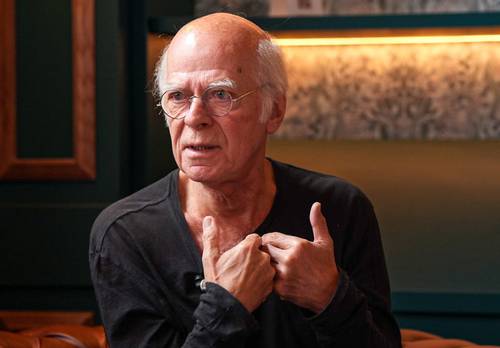Guadalajara will host a rich offering of European cultures, identities and languages
Guadalajara, Jal., The European Union (EU), the region invited to the 37th edition of the Guadalajara International Book Fair (FIL), arrives at the editorial meeting with a proposal marked by the discovery of authors from that continent, most of them women , largely coming from Central and Eastern Europe, mainly exponents of migration and cultural crossing.
Of the more than 71 participants included in the activities of the Literary Program and the EU Pavilion at the FIL, 41 are women writers. The delegation is dominated by authors outside the main European literary traditions, such as French, Italian and German. A significant fraction of these guests are between 40 and 50 years old.
The presence of recognized figures in the field of world literature stands out, such as the French Pascal Quignard, who received this year the prestigious Formentor Prize for Literature, and David Foenkinos, as well as the Portuguese poet Lídia Jorge and her compatriot, the novelist José Luis Peixoto.
Several are distinguished because they have migrated or are heirs of foreign cultures. This is the case of the physicist and poet from Murcia, Spain, Elena Buixaderas, who lives in Prague; the Argentine living in Germany María Cecilia Barbetta; the French sociologist and novelist of Hungarian origin Nina Yargekov, and the Portuguese novelist born in Angola Yara Nakahanda Monteiro.
The Maltese of Palestinian-Jordanian origin Walid Nabhan, the Cypriot poet who writes in Turkish Zeki Ali, the Spanish writer born in the United Kingdom Jacobo Bergareche, the Luxembourger based in Paris Jean Portante, the Dutch of Iranian origin Kader will be present at the FIL Guadalajara Abdolah and the German narrator and professor of Croatian origin Kristian Novak.
The participants in this fair confirm what was advanced by the curator of the EU program (The Jornada, 6/28/23) about a rich proposal that reflects the cultural and language diversity of contemporary Europe, in which also we are discovering ourselves
through authors from the 27 countries of that community of nations and with speakers of many more than the 24 official languages.
Writers from small countries are represented by Romanians Adina Rosetti and Svetlana Cârstean, Czech Jitka Bret Srbová, Markéta Pilátová and Sylva Fischerová, Bulgarian Elena Alexieva, Slovenian Jana Benová, Hungarian Judit Berg, Lithuanian Jurga Vilė, Estonia Kai Aareleid, Slovak Mária Ferencuhová, Latvian Nora Ikstena, Croatian Olja Savicevic and Moldovan-Romanian Tatiana Tîbuleac.
In that line, the Greeks Ersi Sotiropoulos and Kallia Papadaki, the Irish Louise Nealon and Megan Nolan, the Finnish Cristina Sandu, the Cypriot Eleni Kefala, the Dutch Eva Meijer, the Ukrainian Haska Shyyan and the Portuguese Joana Estrela.
They combine writing in many literary genres, languages, themes and cultural backgrounds, the result of societies with a very broad and sometimes contrasting cultural amalgam.
Marginality and tradition
From Spain, in addition to the well-known María Dueñas, exponents of languages and regions will be presented, such as the Navarrese artist Idoia Iribertegui, the Galician poet and novelist Berta Dávila, the Catalan critic and writer Care Santos, the Basque narrator Karmele Jaio, the Asturian Alfonso Zapico and the Madrid poet Stephen Marchand Fernández.
From the marginalization in Europe, come the Hungarian András Forgách, the Romanians Dinu Flămând and Stejarel Olaru, the Bulgarian Ilija Trojanow, the Czech Jáchym Topol, the Greeks Nikos Bakounakis and Nikos Chryssos, the Slovenian Peter Svetina, the Croatian Robert Perisic and the Cypriot Stavros Christodoulou.
Provenancers from Ireland are in the program Tadhg Mac Dhonnagáin, who writes in Gaelic, and Colm Tóibín, from Ukraine Andréi Kurkov, and Poles Jacek Dukaj and Witold Szablowski.
Inscribed in the best-known European literary traditions are the Italian narrator Gian Marco Griffi, author of the novel Ferrovie del Messico (Mexican Railways, still unpublished in Spanish), and her compatriot Dacia Maraini; the Belgian writer and actress Isabelle Wéry; of France, Neige Sinno, Penelope Bagieu and Olivier Guez; the Belgian Angelo Tijssens and the Dutch Arnon Grunberg and Frank Westerman.
Gautier Mignot, EU ambassador in Mexico, highlighted at the time that the book meeting will show the diversity of genres with authors and creators, as well as sexual, generation and ethnic identity with the contribution of millions of migrants and their descendants. , which today make up that conglomerate of nations.
